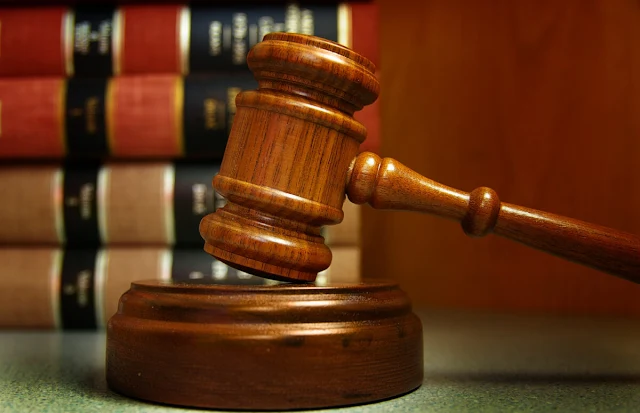The prosecution counsel, Mr Abdullahi Tanko, told the court that the complainant, Ismail Halidu of Kuje, reported the matter to the Iddo Police Division on February 4th. Tanko explained that the defendant, along with Chinonso Izuogba, who is now at large, had assaulted Halidu on his building site.
According to Tanko, the complainant saw two boys on his site with some broken building blocks. When he tried to find out why they were there, Sylvester and Izuogba beat him up. The offences allegedly committed by Sylvester contravene the provisions of sections 97, 348, 327 and 265 of the law.
Under section 327, whoever commits mischief shall be punished with imprisonment for a term which may extend to two years or with a fine or both. The Judge, Abdullahi Abdulkarim, admitted the defendant to bail in the sum of N50,000, with one surety in like sum, and who must reside within the jurisdiction of the court.
Abdulkarim also ordered the surety to provide a National Identity Card or driver's license and adjourned the case until April 20th for a hearing. The defendant's plea was not taken due to the nature of the charges against him.
Assault is a serious crime that can result in significant legal penalties, including imprisonment and hefty fines. According to the law, anyone who assaults another person may be punished with up to three years in prison, depending on the severity of the offence.
In cases where a defendant is accused of assault, they are entitled to a fair trial, and the prosecution must prove their guilt beyond a reasonable doubt. In this case, the defendant has pleaded not guilty, and the court will hear evidence from both sides before making a decision.
The case highlights the importance of respecting other people's property rights and avoiding conflicts that can escalate into physical violence. As members of society, we must all work together to promote peace and harmony and avoid behaviours that can lead to conflict.
The court's decision to grant bail to the defendant is in line with the principle of presumption of innocence until proven guilty. The defendant's bail conditions are designed to ensure that he appears in court when required and does not commit any further offences while awaiting trial.
The case also illustrates the importance of having a robust legal system that can hold individuals accountable for their actions. The court's decision to hear the case demonstrates its commitment to upholding the rule of law and protecting the rights of all citizens.
The defendant's trial is expected to continue on April 20th, and both the prosecution and defence will present evidence to support their respective arguments. It remains to be seen what the outcome of the trial will be, but the court's decision will have significant consequences for both the defendant and the complainant.
Regardless of the outcome, the case serves as a reminder of the importance of treating others with respect and avoiding conflicts that can lead to violence. As members of society, we must all work together to promote peace and harmony and create a safer, more just society for all.



